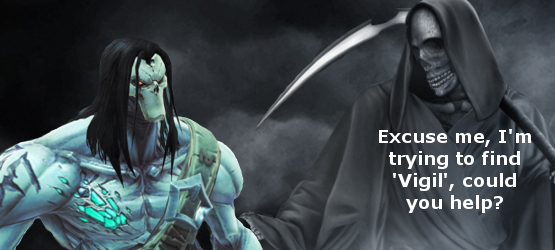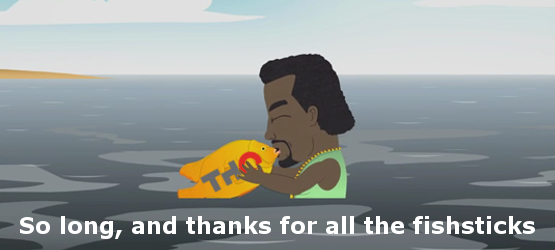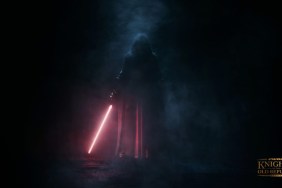While we’ve known it was coming for quite a while, we’re sad to say that THQ is dead. The publisher’s studios and IPs have been picked up by other companies, and the company is set to dissolve. Daily Reaction‘s Seb and Dan discuss the collapse, the sale and the future of THQ’s IPs.
Seb: They may not have been the biggest publisher, they might not have been the best, or the bravest, but I’ll miss them. Goodbye THQ.
We’ve talked about their downfall before, just as they neared bankruptcy. But now that the true extent of what this has meant for the company has come to light, the decisions made over the past few months are utterly baffling. Some of the moves made since Jason Rubin was brought on seem to have directly led to the end of the company, which is confusing, to say the least.
Take cancelling the Saints Row: The Third Dominatrix DLC and putting it into SR4. That’s the biggest DLC for their biggest franchise during their most precarious year. By their own estimates, the decision wiped a whole $20 million off of their earnings by this March. $20 million! The whole company has been split up for only 5x that much.
Then there’s the delay of South Park, Metro and Company of Heroes 2 to improve quality. In theory, that’s a nice move, it means the games will be less buggy and better quality. But they needed the money, they didn’t need long-term sales due to quality. With South Park, they could have sold a decent amount off of the name alone.
These decisions seem to have been made with a long view in mind – yet they were already in talks with Clearview discussing bankruptcy. It’s very odd, and very sad. They could have saved the company if not for these last few decisions that destined it to failure.
Dan: Watching a games company fall to pieces really has become too much of a norm this generation, as we have lost numerous developers, and now one of the major publishers who goes as far back as 1989, when they were originally a toy company (hence the name Toy HeadQuarters or THQ). With the immense cost to develop AAA titles, it really is not a surprise that we are seeing more studios and publishers go up for sale, as the ability to produce a product that sees a return is only going to become more difficult over time.
THQ has had a hand in developing titles in countless genres for people of all ages, but in 2011 they decided to move away from licensed products by closing two of their developers, THQ Studio Australia and Blue Tongue, to focus on bigger properties.
Given the success of the Saints Row series, and the (incorrectly) predicted buzz around upcoming franchises like Darksiders and Homefront, it would not be without reason to say that this was a viable idea for THQ at the time. But, as we now see, the risk that THQ took by trying to develop a number of expensive IPs really set up the whole company for failure, as there were not enough products actually generating profit to sustain the development of bigger titles to a point where they would finally see a return. Something that was amplified by their attempt at producing the infamous U Draw, which has become one of the biggest disasters in recent development history.

Seb: It’s a clear reminder to all publishers and anyone in the industry just how quickly the tables can turn. Now that they’re gone, I guess it’s time to turn our eyes to the future of the studios that survived.
The biggest surprise out of all of this has to be the aggressive bidding by the small publisher Deep Silver, best known for Dead Island and, uh, Dead Island: Riptide. They’ve published a bunch of small games, mostly across Europe, in the past, but Techland’s buggy zombie game was their big break – it was their first official number one hit. They don’t even seem to have their own development studios – Techland, for example, is independent. Now, suddenly, out of the complete blue, they own Volition and the rights to the Saints Row franchise, as well as the Metro rights. Boom. Somebody wants to play.
It’s a very clear statement – Deep Silver want to make a name for themselves as a console publisher. And good luck to them, everyone else seems to be running away. I hope they fully comprehend the difficulties they are set to face, especially with the next gen transition, because the last thing we want is for them to follow THQ’s footsteps.
One worrying sign that they lack experience (as well as being tragically funny) is noticeable in the bidding process itself. Each publisher entered a bid for what they wanted, without being able to see who else bid, and the highest won. For most of the games and studios the winner beat their closest rival by less than a million. For Saints Row + Volition, they bid $22.3 million, while their closest rival (Ubisoft) bid $5.4 million. That means Deep Silver has to pay nearly $17 million more than they needed to – which is almost the dev costs of a whole game.
As a whole, though, the entire auction was a fire sale. THQ Montreal + 2 IPs for $2.5 million? That’s a huge development studio deep into the development of 1666 and Underdog, with a contract to grow to 400 employees over 5 years. As THQ’s largest development studio, it has cost them far, far more to create and set up, and will bring in far greater returns. Ubi sure got themselves a terrific deal.
Crytek bought Homefront for half a million, after THQ spent “tens of millions” marketing it, so they have also got themselves a bargain. However, I’m not sure just how glad they are to have had this happen, because they are not a publisher. They don’t have the distribution chain, and now need to find a partner to publish their game, relatively close to release. Expect to hear more on this as Crytek travels around looking for a publisher.
The saddest news has to be Vigil – a terrific dev who just weren’t able to get enough sales for Darksiders II. I was hoping someone would buy them – they are a fully formed, set up and talented dev after-all – to work on a new IP. There’s still hope that that could happen, but the likelihood of a publisher coming in now, after the bidding process is over, seems increasingly unlikely.
Dan: While it is very sad to see THQ fall the way it has over the last year, the fact that most of the studios underneath it are still able to find a home with some of the biggest, and fastest growing publishers around is the best we could have hoped for. This is especially true given that there are a number of titles still in development, and their fates could have been changed overnight.
The one game that I have been the most curious about is South Park Studio’s The Stick of Truth, which was set to be released in March. Now that the license has been picked up by Ubisoft for almost $3.3 million, it will not make its original release date, but will be coming this year. Hopefully, as the game was so close to its release schedule, it will not be too far off from when we were hoping to play it, and won’t suffer changes that make the game worse. With South Park being such a big franchise outside of the games industry, there is a lot of potential for this game has to turn out a profit far beyond what Ubisoft paid for it – a prime example of why Ubisoft is seeing growth.
Even though Ubisoft apparently now has the license for the South Park game, there are still a number of questions that have popped up since rumors of the property would go on sale. The biggest question was an apparent clause in the contract between THQ and South Park Studios, which stated that the rights to the license could not be transferred to another entity. Whether this means that South Park Studios has agreed to the new terms, and allowed the transfer, or if there was another factor allowing Ubisoft to become the new rights holder has yet to be seen (THQ disputed the clause’s existence). All I can say is, I really am looking forward to running around that tiny town in Colorado.
As many publishers got away with incredible deals on studios and IPs, Sega was the one company who placed the highest bid of all – $26.6 million for Relic Entertainment and the Company of Heroes IP. As Relic has produced little outside of Company of Heroes and Warhammer 40k titles over the last 10 years, it is hard to say if this is going to be a successful acquisition for Sega or if they bought the horse too late in its prime. But it is clear there will be some benefit acquiring a developer that has worked on numerous Warhammer games, as Sega already has one in the works. Given that Warhammer games have had mixed success, it is still hard to see if Sega will be able to find a way to rejuvenate the IP as a whole, even though the critically acclaimed Creative Assembly have their title in the works. But with that, and Company of Heroes 2 set to be released in the near future, we will have to wait and see how Sega handles their new franchises, as we will with the rest of the other new title holders.
What was your favorite THQ game? Do you think that any of the THQ franchises will suffer from new ownership? Who would you liked to have seen as the owner of your favorite THQ IP? Let us know in the comments, or by acquiring our twitter accounts at Seb and Dan.
Be sure to email DR ideas, podcast comments and investment opportunities to [email protected].








